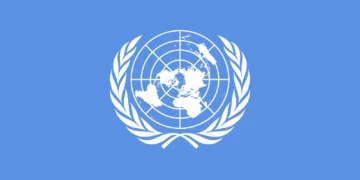Constituency projects for lawmakers were initially meant to be avenues through which they could reach out to their constituents. Because of their perceived relevance, these projects are statutorily provided for in the budget of the National Assembly.
But over the years, they have been characterised by controversy, inefficiency, and corruption, recording minimal impact.
Constituency projects were conceived as developmental tools to permeate the nation’s constituencies from the federal purse. The idea was that federal lawmakers represent particular geopolitical spaces, so they will best understand their people’s needs and design projects to meet those priorities. A more self-preserving reason is that in a country where constituents rate elected politicians on physical projects, regardless of whether they are in the executive or legislature, the lawmakers need those projects as evidence of effective representation for election purposes.
However, like most public funding facilities, which are not tightly regulated, the projects have become subject to gross abuses.
Various reports, including one recently exposed by Agora Policy, a reputable Nigerian think tank, have exposed the systemic flaws embedded in the constitutional and institutional frameworks that govern these projects. With constituency projects now consuming a staggering ₦6.93 trillion, or 2.6 per cent of the ₦54.99 trillion federal budget for 2025, there is the need to critically assess this concept to ensure that lawmakers and their accomplices do not continue to use it as a conduit to fleece the system on such a massive scale.
In Nigeria’s presidential system, the executive has the constitutional duty to initiate and implement the budget when appropriated. At the same time, the legislature reviews, approves, and oversees the project implementation to ensure that it is delivered as approved—a classic case of separation of powers and checks and balances, which are cardinal principles in democracies and federal systems.
Sadly, these principles are more often observed in the breach. Legislators hijack the process by inserting their preferred projects into the federal budget and influencing implementation most times through proxies and relatives.
As a result, the outcome of this legislative overreach has been dreadful. Items such as streetlights, boreholes, and even renovations of traditional rulers’ palaces worth billions of naira, which should be the work of local councils or state authorities, litter the federal budget. For instance, the 2025 budget contains 1,477 streetlight projects worth ₦393.29 billion and 538 boreholes valued at ₦114.53 billion. Many of these projects lack proper planning or maintenance strategies.
In the end, some are not done, and those begun are not completed, adding to the country’s inglorious abandoned projects’ syndrome.
Probes carried out by anti-graft bodies, including the Independent Corrupt Practices Commission (ICPC), reveal a worrying pattern: projects are replicated, poorly executed, their costs bloated, or they are entirely fictitious.
According to BudgiT, in the 2024 federal budget, 2,558 projects worth over ₦624 billion were allocated to ministries and agencies outside their core mandates or competencies. As a result, they lack transparency and accountability.
BudgIT reports that vague empowerment projects in the 2025 budget, worth ₦732.5 billion and comprising 4,440 initiatives, lack clear deliverables or measurable outcomes. Also, legislators often exceed the ₦100 billion cap on empowerment projects, funnelling money through government agencies they control and subcontracting project execution with no tangible oversight.
For a country that is borrowing heavily to fund its national budget, this kind of waste of scarce resources should not be condoned any further. Of the ₦54.99 trillion budgeted for this year, the federal government’s expected revenue is N41.81 trillion. The deficit, about N13.08 trillion, will be financed through external borrowing. Furthermore, Nigeria’s total public debt stock, encompassing both external and domestic debt, according to the Debt Management Office (DMO), reached N149.39 trillion (approximately $108.23 billion) in the first quarter of 2025, which is set to increase with the government still intent on more loans.
The African Development Bank (AfDB) estimates that Nigeria uses about 75 per cent of its national income to service debts, leaving insufficient funds to cater for the country’s critical needs.
A country like Nigeria that borrows heavily to fund the national budget should not allocate trillions of naira of the same borrowed money in a way that allows for fraud and leakages.
To this extent, therefore, the President Tinubu-led executive must stop this malady. The executive must reclaim its constitutional authority over budgeting and initiate a comprehensive policy framework that limits constituency projects, clarifies their scope, and ties allocations to transparent, accountable mechanisms. Projects should be confined to strategic and sustainable investments that local governments cannot finance alone and must involve citizen participation at all stages.
Also, anti-graft bodies must step up their investigation and prosecution of abuses. Credible civil society platforms should be empowered to monitor project implementation and hold public officials accountable.
Based on recent developments, constituency projects have largely exposed inadequacies in Nigeria’s constitutional and governance frameworks, providing a leeway for politicians to squander trillions of naira to cater to narrow interests.
The present administration must muster the political will to stop or reform this system so that it becomes a tool for development rather than a cesspit of corruption and abuse of power.





